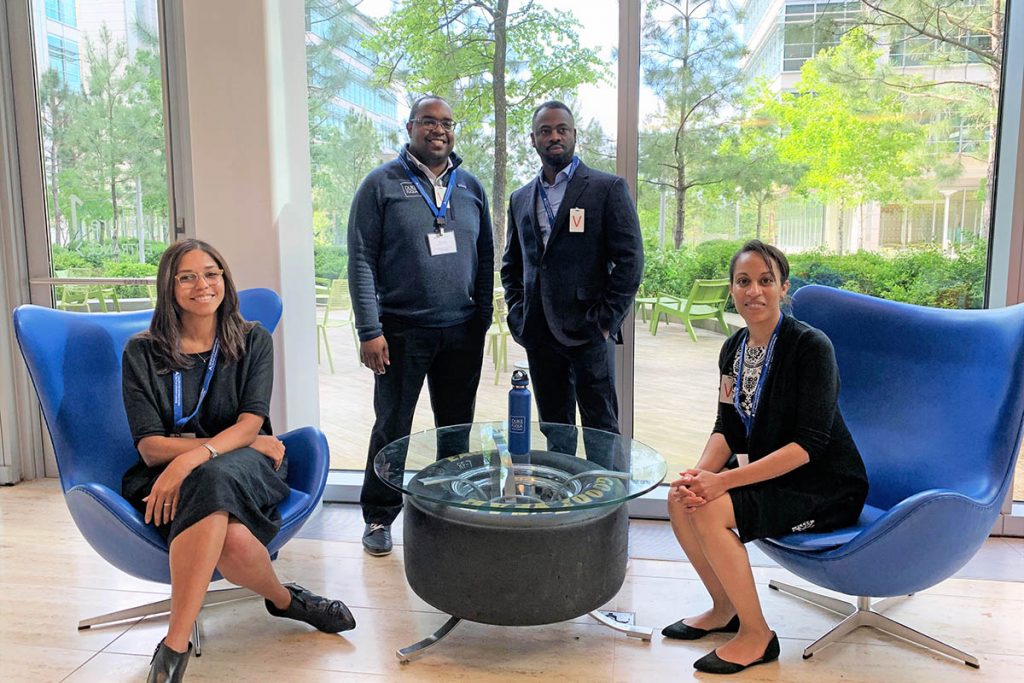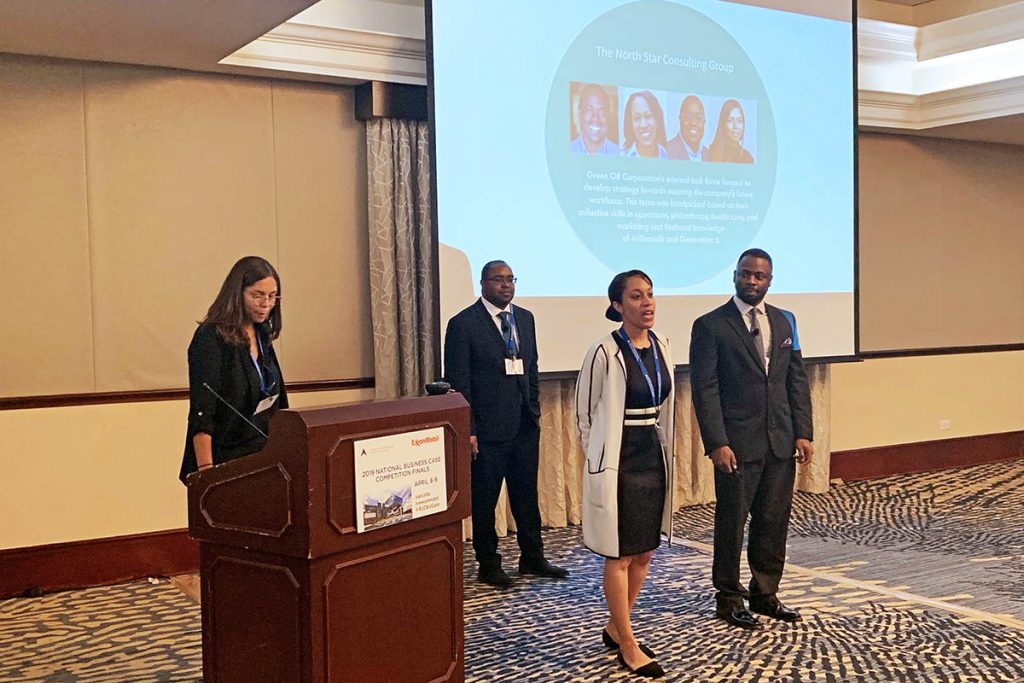Duke Weekend Executive MBA Student Blog

A Priceless Experience Beyond the Classroom
Fuqua students have the opportunity to participate in memorable extracurricular activities that build upon the coursework and leadership skills that we learn here. Case competitions are one such example

Fuqua students have the opportunity to participate in memorable extracurricular activities that build upon the coursework and leadership skills that we learn here. Case competitions are one such example.
The Competition
This past spring, we participated in the Executive Leadership Council’s business case competition. We were awarded second place out of the top three finalists and were proud to represent Fuqua at the event. It was an amazing opportunity to utilize our industry and academic knowledge to solve a business problem while strengthening our team-building skills. The competition also gave us exposure to an organization with which we were unfamiliar.
The Executive Leadership Council (ELC) is dedicated to developing emerging minority global business leaders. It is a national organization comprised of minority CEOs and executive leaders at Fortune 1000 and Global 500 companies. The ELC hosts an annual business case competition that provides MBA students with the opportunity to engage with these executives as well as other minority students while innovating around a corporate challenge.
For this year’s competition, teams were asked to develop a comprehensive strategy for the recruitment, development, and retention of minority leaders at a Fortune 100 company. Each team was given a month to conduct research and devise a comprehensive proposal. The top three teams were selected to present a final pitch before a panel of judges comprised of ELC and ExxonMobil executives.

The Benefits
We chose to participate in the event for several reasons. First, it was an ideal opportunity for us to build stronger relationships in a non-academic setting. Over 19 months, Fuqua team assignments enable us to work with only 20 of our 130 classmates. The competition afforded us a chance to work with one another when we would not have other occasions to do so. During our two months together, we learned a lot about one another both personally and professionally. The experience also facilitated learning from classmates, Fuqua alumni, and the administration, all of whom helped with our research in both the oil and gas industry and recruitment efforts. The guidance and support that we received from Bryan Kirk, Kay Simmons, Hilda Pinnix-Ragland and Dean Bill Boulding and Associate Dean for Admissions Shari Hubert were instrumental to our success.
The ELC case competition also enabled us to meet minority students and executives outside of the Fuqua network. We enjoyed meeting the Wharton and Miami teams and learning about their backgrounds. We were equally appreciative to have the opportunity to meet multiple minority leaders at Exxon, the ELC and other industries.
Another benefit of the competition was that it fostered the development of skills taught at Fuqua. Case competitions give students the chance to apply academic concepts from leadership, marketing, and accounting to real-world challenges at other companies. Most EMBA students apply these concepts as well as others to challenges in their workplace. However, their efforts may be siloed within a department and take time to come to fruition. In case competitions, feedback on skills is provided almost immediately given the short time frame for project completion. Also, sponsoring companies and organizations like the ELC are eager to support the development of future talent. The ELC format, which incorporates a feedback session immediately after a pitch, was especially helpful in highlighting both team and individual strengths and areas for improvement.

A final benefit of participating in a case competition is that it compels students to think more broadly about problems. The ELC competition, in particular, prompts students to think about some of the largest issues of our generation—climate change and recruiting talent in a way that meets their evolving needs. In our proposal, we discussed the role of energy in building emerging economies, current climate initiatives in the energy sector, and outlined a corporate social responsibility plan to enhance these efforts. We also proposed Millennial and Gen Z specific recruiting solutions such as student loan repayment offset by 401(k) reductions and talent development strategies to facilitate technical and leadership skills in the age of automation.
As you can imagine, participating in the case competition as an executive MBA was quite a bit of work. It can be especially difficult to balance the competition with academic, professional, and family obligations. Yet, when considering our short time together at Fuqua and the relationships that you can build in a competition, the experience was priceless.


